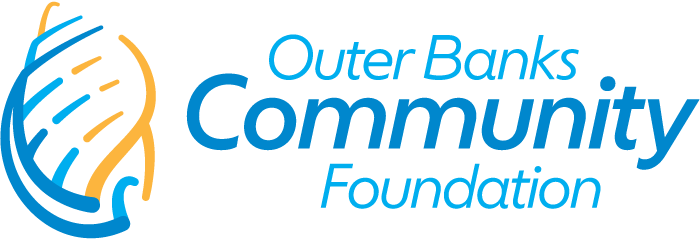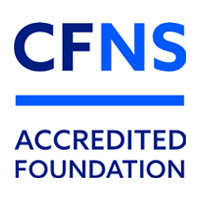Boland-Hunter Fund Ignites Hands-On STEM Learning Across Dare County
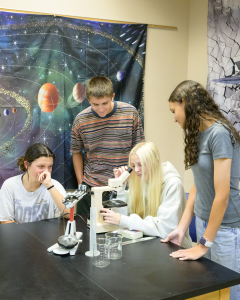
First Flight High School students working on the Green Banks Carbon Project, which is supported by the Boland-Hunter Fund. Photo courtesy of Biff Jennings.
By Brian Tress
When donors Jim Willis and Bob McKay set out to support local schools, they weren’t looking to fund “more of the same.” They wanted to light a spark—giving educators the freedom and resources to try bold, hands-on STEM projects that spark curiosity and confidence. That vision became the Boland-Hunter Fund, a new Outer Banks Community Foundation (OBCF) initiative launched in 2025 to champion teacher-driven STEM Education.
OBCF President and CEO Chris Sawin says the fund backs ideas that push past worksheets and into real-world discovery.
“The grant supports bold, inspiring ideas from local STEM teachers—projects that make students excited to explore science, technology, engineering, and math in new ways,” said Sawin.
Willis and McKay—lifelong friends—partnered with OBCF after realizing the foundation could tailor a fund to their goals.
“I thought OBCF mostly handled scholarships,” said Willis. “I didn’t realize they could help take a good idea and make it real in our local classrooms.”
Each year, the fund awards up to $5,000 to two projects—one at a high school and one at a middle or elementary school. Funding flows to the school, but the ideas originate with teachers and can cover equipment, field trips, and other hands-on learning needs.
For Willis, a chemist by training who later led chemical safety programs at the U.S. EPA and the UN Environment Programme, the fund is personal. A single college professor, he says, changed everything.
“I had no idea what I wanted to do in college until a chemistry professor got me tremendously excited about the subject,” Willis recalls. “That spark—when a teacher connects with a student—can set a life in motion.”
Willis believes STEM education builds skills that serve everyone.
“Even if you don’t choose a STEM career, those skills are foundational,” he said. “They give you the tools to make informed decisions in life.”
Just as important, he adds, is trusting educators: “Teachers already have creative ideas. They need freedom first—and then resources—to bring those ideas to life.”

First Flight High School students and science teacher Micah Ouellette accepting the OBCF check for the Green Banks Carbon Project, which is supported by the Boland-Hunter Fund. Photo courtesy of Biff Jennings.
Project Spotlight: First Flight High School — Green Banks Carbon Project
At First Flight High School, science teacher Micah Ouellette is guiding students into a cutting-edge coastal experiment: testing olivine sand as a way to capture carbon dioxide and reduce ocean acidification—an approach currently being piloted in Duck. Students will design, build, and evaluate small-scale models and collaborate with local experts.
“Living here, you see how quickly the landscape changes,” Ouellette said. “I wanted students to think about the future of their coast—and how science can help protect it.”
The project spans both biology and physical science, blending environmental observation with engineering and data analysis. Students will compare measurements taken before and after introducing olivine to assess its effects.
“Not everything is on Google,” Ouellette said. “You have to ask questions, test ideas, and see what’s really true. Science is a process, not just an answer.”
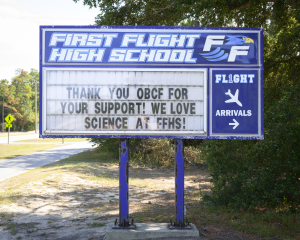
First Flight High School’s marquee showing love for the Outer Banks Community Foundation and science! Photo courtesy of Biff Jennings.
The grant supports specialized materials, fieldwork, and the procurement of olivine sand from overseas. About 100 students will take part this year.
“We simply couldn’t do this without donor support,” Ouellette said. “It’s incredible to see the excitement building.”
Emme Ingram, a First Flight sophomore, agrees.
“It’s amazing that a natural mineral can help capture carbon—and we get to see it in action, not just read about it,” said Ingram. “It feels meaningful to be a part of it.”
Project Spotlight: Manteo Middle School — Cluck & Flow: Our Eco-Learning Lab
At Manteo Middle School, teacher Melissa Jones is building an outdoor classroom where students learn sustainability by caring for chickens, managing compost bins, and expanding greenhouse capacity to support aquaponics. The lab will serve the entire student body, align with curriculum standards, and create authentic pathways into science fair projects. Field trips to Island Farm and the Coastal Studies Institute will reinforce lessons in environmental stewardship and local ecology.
The grant funds permanent infrastructure—a chicken coop, compost systems, and greenhouse improvements—ensuring the project’s impact lasts well beyond a single school year.
Sawin says the project exemplifies the fund’s purpose.
“We encouraged proposals that move beyond traditional instruction,” he said. “Cluck & Flow invites every student to experience how food, waste, water, and energy connect in the real world.”
With both of these STEM projects underway at the schools, OBCF and the donors are enthusiastic about what these students and their teachers are getting to experience.
For Willis, success isn’t measured by test scores. It’s about lasting influence.
“If a project leaves a structure—a curriculum, equipment, or a model—that keeps the learning going, that’s success,” he said. “And if one or two students get so excited that they carry that enthusiasm forward into their careers or their lives, that’s even better.”
Because this is a pilot year, Willis and McKay plan to meet with OBCF staff and teachers once the projects are complete to assess what could be improved for the next round of grants.
The Boland-Hunter Fund meets teachers where their best ideas live: in their classrooms, rooted in the local landscape, and powered by hands-on curiosity. From coastal carbon capture to sustainable farming, these projects show how STEM learning can be collaborative and transformative.
With this fund, Sawin sees a clear throughline from donors to educators to students.
“When you invest in teachers, you invest in students—and when you invest in students, you invest in the future of the Outer Banks,” he said. “That’s the ripple effect this fund aims to create.”
To learn more about the Boland-Hunter Fund or to support future educational grants, visit OBCF.org or call 252 423 3003.
It has never been easier for you to make a real impact in our community! At the Outer Banks Community Foundation, there are countless ways to get involved in philanthropy. Start your journey today and make a lasting difference in the lives of those around us.
About the Outer Banks Community Foundation: The Outer Banks Community Foundation is a 501(c)3 nonprofit organization committed to fostering philanthropy and supporting local causes. Through its charitable funds and grant programs, the Foundation strives to enrich the quality of life for residents of the Outer Banks.
